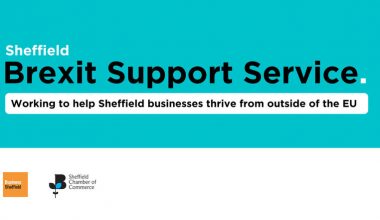Results from the first major business survey for 2021 by the British Chambers of Commerce on Brexit found that half (49%) of exporters are facing difficulties in adapting to the changes in the trade of goods following the ratification of the UK-EU Trade and Cooperation Agreement (TCA) on 1 January 2021.
Fieldwork for the survey, which received 1,000 responses, mainly from SMEs, was carried out between 18 and 31 January 2021. Nearly half (47%) of respondents exported goods or services.
The survey sought to understand the extent to which businesses found it easy or difficult to adapt to changes in trading goods and/or services and moving people in the month since the ratification of the TCA. Businesses reported the highest proportion of difficulties in adapting to changes in trading goods.
The survey found that:
- overall, around a third of respondents (30%) reported difficulties adapting to changes to moving or trading goods in the first month of the year, while 10% said they had found adapting to the changes easy. 45% said trade in goods was not applicable to their business, and 16% said it was too early to say;
- however, the percentage facing difficulties in adapting to changes in trading goods rose for exporters, where half (49%) reported issues, as well as manufacturers, where the percentage facing difficulties was more than half (51%);
- overall, 14% of firms said that they faced difficulties in adapting to changes in the trade of services. 10% said they had found adapting to the changes easy. The percentage facing difficulties rose for exporters, where 21% reported issues.
Commenting on the results, BCC Director General Adam Marshall said:
“Trading businesses – and the UK’s chances at a strong economic recovery – are being hit hard by changes at the border.
“The late agreement of a UK-EU trade deal left businesses in the dark on the detail right until the last minute, so it’s unsurprising to see that so many businesses are now experiencing practical difficulties on the ground as the new arrangements go live.
“For some firms these concerns are existential, and go well beyond mere ‘teething problems’. It should not be the case that companies simply have to give up on selling their goods and services into the EU. Ministers must do everything they can to fix the problems that are within the UK’s own control, and increase their outreach to EU counterparts to solve the knotty issues that are stifling trade in both directions.
“This situation could get worse if the UK sticks to its guns and introduces additional SPS checks in April and full customs checks on imports in July. These timescales need to change – and the support available for businesses who are battling to adapt to new trading conditions significantly increased.”
Peter Kersch, Managing Director of manufacturing company World Feeds Ltd based in Doncaster who export all around the world said:
“We can’t get anyone to transport our products into the EU. No one will touch it. Many large companies have suspended shipments to the EU, which we understand because they have so many vehicles and consignments tied up awaiting clearance due to new red tape and documentation.
“Exporting has now become a lottery. Over 30% of our business is at risk if this is not sorted out quickly. For a small company like ours it is critical. We have major planned business development in Germany and Norway this year to give us an increase close to £1m in sales.”
Dan Fell, Doncaster Chamber Chief Executive Officer said:
“Our business community has been put through the mill this last year and large elements of the private sector are, quite justifiably, asking where their friends in government are at present.
“Yorkshire’s economy has taken a massive hit as a result of the coronavirus pandemic. The only solution to that – for places like Doncaster – is to go for growth and to continue diversifying our economy as a way of recovering from the crisis.
“Exploring global opportunities and supporting more firms to internationalise should be a big part of that story. However, at present, our existing exporters are being absolutely hamstrung by red tape, the breakdown of distribution networks and the slowness of government to respond to the issues raised in this important survey.
“If the economy is to recover fully from the pandemic, businesses – large and small – must be able to trade efficiently and competitively with the EU. It is incumbent on government to act and to work swiftly with EU partners to remove the barriers that many companies – including international traders in Doncaster – are now facing through no fault of their own.”






